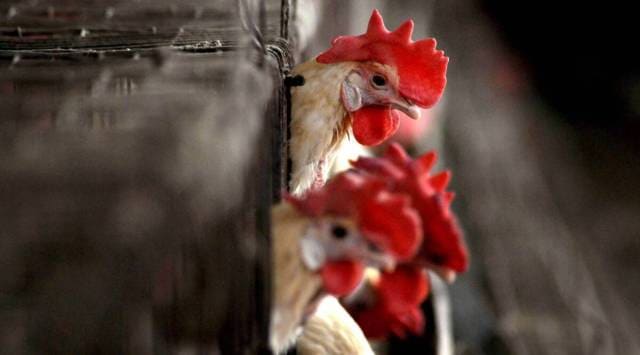Stay updated with the latest - Click here to follow us on Instagram
Delhi zoo reports first bird flu death
After the death, sanitisation and surveillance drills have intensified at the zoo to stop further spread of the avian influenza virus.
 Avian influenza is a highly contagious viral disease caused by Influenza Type A viruses which generally affects poultry such as chickens and turkeys.
Avian influenza is a highly contagious viral disease caused by Influenza Type A viruses which generally affects poultry such as chickens and turkeys.A brown fish owl kept in captivity at the Delhi zoo died earlier this week and tested positive for bird flu on Friday, director of the National Zoological Park (NZP) Ramesh Pandey said.
Sanitisation and surveillance drills have been intensified at the zoo and preventive measures are being taken to stop further spread of the avian influenza virus, Pandey said.
“The NZP witnessed death of a brown fish owl in its captivity and, therefore, the cloacal, tracheal and ocular swabs of the bird was sent to the animal husbandry department… which has been found positive for H5N8 avian influenza virus,” he added.
The samples were tested at the Bhopal-based ICAR-National Institute of High Security Animal Disease (NIHSAD), Pandey said.
The owl had died following a serological survey that was carried out by a team of officials from the zoo and Delhi’s animal husbandry department on January 11.
“Faecal droppings of free ranging birds and water samples of ponds in NZP were collected from different locations and sent for serological examination related to avian influenza,” Pandey said.
The director said the zoo houses captive and free ranging birds, including local migratory waterfowls and waders.
He said the NZP was following avian influenza-related protocol and guidelines issued by the Central Zoo Authority, the environment ministry and animal husbandry department, which have now been intensified.
“Birds in captivity have been isolated and are under consistent monitoring and care for their behaviour and health. Spray of lime, Virkon-S & Sodium hypochlorite, and foot bath of potassium permanganate, are being done on regular intervals every day,” Pandey said.
“Chicken feed to raptors and entry of vehicles inside the zoo had already been stopped, which is being further reinforced and intensified. Movement of staff and workers in the zoo is also being restricted and regulated keeping in view the virus threats. The NZP is already closed due to Covid-19 and is not open to the public,” he added.







